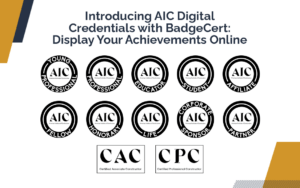Construction projects are supported by a lengthy process that includes bidding, forming contracts, planning, and the actual work at the job site. Unfortunately, unscrupulous individuals may try to engage in unethical behavior to gain an unfair advantage.
Construction managers play a crucial role in upholding ethics throughout every step of a construction project and proactively addressing unethical behavior in construction.
To support your role, sharpening your understanding of ethical issues is critical. Being aware of unethical behavior will help you detect, recognize, and address improper conduct throughout the construction process.
Key Areas to Identify Unethical Behavior in Construction
Ethical situations can pop up at any stage of a construction project. Consider the following key areas to focus on so that you can help bring projects to fruition in an ethical manner.
Ethics in Bidding
Long before the first work crew is on the site, constructors make ethical decisions. In fact, you may face a moral dilemma before your company even meets with a client during the bidding stage.
One example of unethical behavior during the pre-construction stage is bid cutting, also referred to as bid rigging or bid fixing. This unethical activity occurs when multiple construction companies collude to ensure that work is spread around evenly.
For instance, three construction companies who all work in the same area may come together in order to rig bids. Construction Companies A and B will provide an astronomically high estimate so Company C can provide an estimate that is too high but is still lower than their two “competitors.” When the next job becomes available, Companies B and C will price themselves out of the running. The cycle continues, clients are charged too much, and the free market suffers.
The idea of working with competitors in order to cut down on real competition while maximizing profits is at the heart of bid cutting. Not only is this unethical behavior, but bid cutting is also illegal. Bid rigging practices can be prosecuted on a federal level by the Antitrust Division of the United States Division of Justice.
Takeaway: Be prepared to address this ethical situation immediately when you suspect unethical practices in the bidding phase. Be prepared to speak up and address the issue before contracts are signed and plans are made.
Ethics in Construction Planning
It’s also important that construction professionals practice ethics during the planning process. It’s not uncommon for companies to offer clients price quotes that include high-end materials only to use cheaper materials when construction actually begins. As is the case with bid rigging, this isn’t only unethical; it’s also illegal.
– Consider the following example. A contractor is planning to build a new single-family home for a client. When compiling the estimate for the project, the contractor includes high-quality paperless drywall, which currently costs around $26 per sheet.
Because most homeowners won’t know the difference between one type of drywall and the next, an unscrupulous contractor might see an opportunity to make some extra money. Instead of using that drywall, the contractor installs basic fire-resistant drywall, which costs $10 per sheet, increasing their profits.
Takeaway: While this common practice is tempting, it’s unethical. If you are involved in a project where the client is not receiving what they paid for, it’s better in the long run to address the situation. Otherwise, your company risks legal ramifications down the road that will far outweigh any short-term boost in profitability.
On-Site Ethics
During the actual project work, unethical practices include those that put the men and women who construct the buildings in harm’s way. Construction managers are responsible for ensuring that your team is in a position to complete their jobs safely.
Unfortunately, many companies will try to save money on labor by getting the job done faster and cheaper instead of getting it done safely. However, taking this approach can expose your company to long-lasting damage from a cost, time, and reputation standpoint. Construction managers should look for ways to elevate safety to overcome this ethical dilemma.
Investing in safety equipment is one of the first steps to providing an ethical, safe workplace for your staff. This investment should include everything from quality harnesses to tools that have functioning safety features.
Additionally, it would be best to invest in quality safety training programs that ensure your employees know how to practice safety on the job site.
Finally, you mustn’t explicitly or implicitly urge your staff to get a job done faster than it can safely be completed. The construction industry is already filled with danger. When you force your employees to rush through a project in the name of saving some money on labor, you’re putting them at risk even more.
Takeaway: Construction managers should consider safety as important as cost, time, and quality requirements. If you feel pressured from above to encourage your crew to work faster, take a step back and review the potential ramifications. Gather evidence to help you present an alternative plan to management so that you don’t risk an unethical situation.
Learn More About Ethical Situations in Construction
One of the most effective ways to ensure that you’re operating ethically is to stay current on the latest construction industry trends. The American Institute of Constructors (AIC) strives to provide constructors with ethical resources and information to perform critical duties.
Follow AIC on LinkedIn to find out more about unethical behavior in construction and how to sharpen your skills to address these issues head-on.




